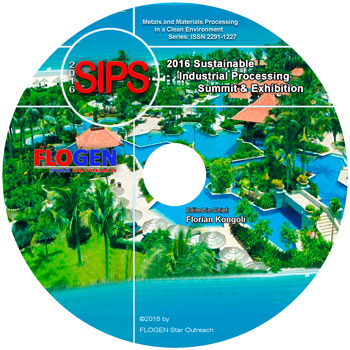2016-Sustainable Industrial Processing Summit
SIPS 2016 Volume 7: Yang Intl. Symp. / Multiscale Material Mechanics
| Editors: | Kongoli F, Aifantis E, Wang H, Zhu T |
| Publisher: | Flogen Star OUTREACH |
| Publication date: | 21 December 2016 |
| Pages: | 190 pages |
| ISBN: | 978-1-987820-48-5 |
| ISSN: | 2291-1227 (Metals and Materials Processing in a Clean Environment Series) |

CD shopping page
Dislocation-based discrete-continuous crystal plasticity model at submicron scale
Zhuo Zhuang1;1TSINGHUA UNIVERSITY, Beijing, China;
Type of Paper: Regular
Id Paper: 358
Topic: 1
Abstract:
Crystal plasticity at micron-nano scales involves many interesting issues. Some results are obtained for uniaxial compression experiments conducted on FCC single crystal micro-pillars, e.g. size effect and strain burst, etc. In the experiments, the mobile dislocations may escape from the free surface leading to the state of dislocation starved whereby an increase applied stress is necessary to nucleate or activate new dislocation sources. By performing in-situ TEM, the dislocation motion affected the material properties is observed. However, the atypical plastic behavior at submicron scales cannot be effectively investigated by either conventional crystal plastic theory or molecule dynamics simulation. The surfaces are transmissible and loading gradients are absent. Therefore, the strain gradient theory could not well explain these new mechanical behaviors dominated by single-arm discrete dislocation source since the Tayler low is no longer available at submicron scale. This, in turn, has led to develop new analytic and numerical models. Accordingly, a three dimensional discrete-continuous crystal plastic model is developed, which is coupling the discrete dislocation dynamics with finite element method. Three kinds of plastic deformation mechanisms for the single crystal pillar are investigated: (1) Single arm dislocation source controlled plastic flow; (2) Confined plasticity in coated pillars; (3) Dislocation starvation under low amplitude cyclic loadings. The predicted results agree well with the experimental data.